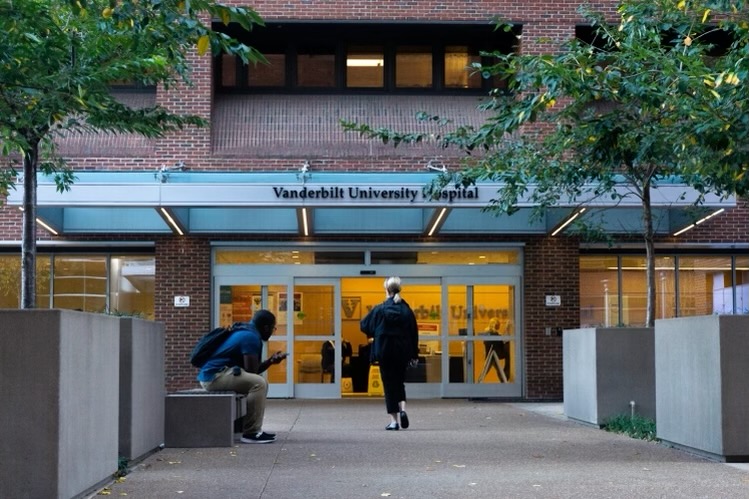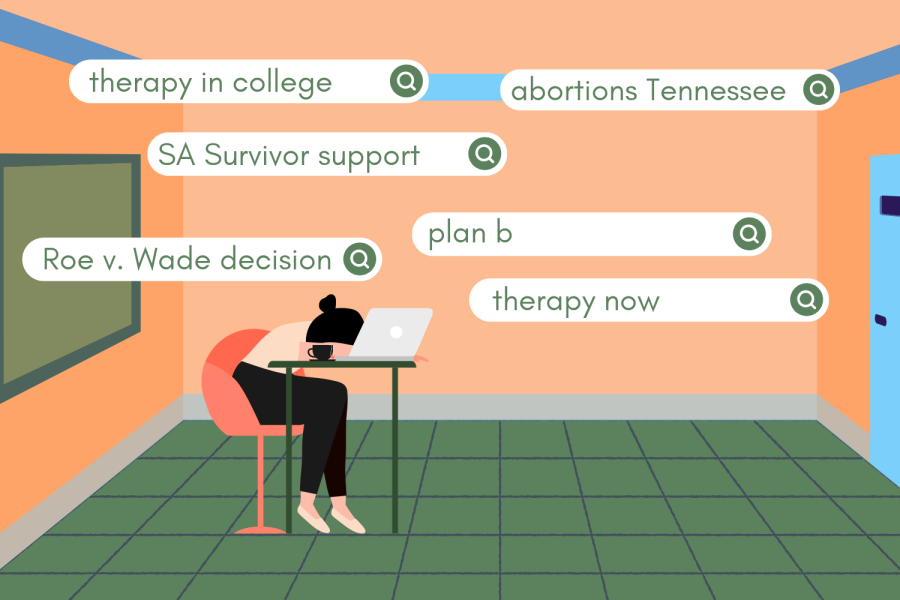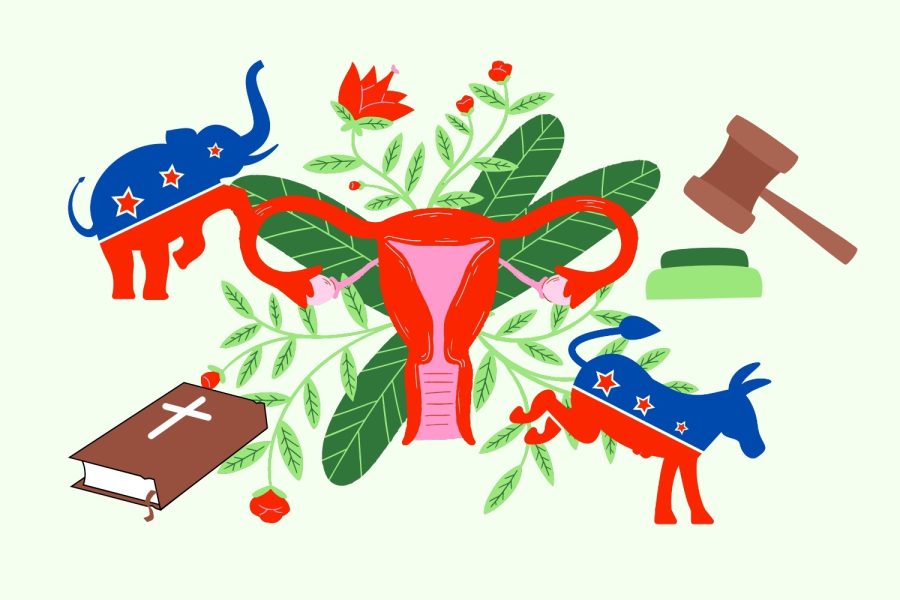As a result of Dobbs v. Jackson Women’s Health Organization (2022), students at Vanderbilt University School of Medicine have reported decreased efficiency in healthcare delivery in the clinical setting of VUMC, as well as gaps in their education.
In an Aug. 27 joint statement, VUMC and VUSM announced that they both made policy changes to remain “in full compliance with federal and state law.” The press release did not outline these changes.
“VUMC has instituted policy changes intended to mitigate some of the health care and health equity concerns that are anticipated due to this new law,” the press release reads. “Our goal is to support our clinicians to provide comprehensive reproductive health care to women in need, including facilitating appropriate care for our patients who are pregnant, consistent with federal and state law.”
VUMC declined to comment on Nov. 29 on specific policy changes or their potential effect on healthcare practices and education. A VUMC representative directed The Hustler to its press release.
Healthcare delivery
Tennessee’s trigger law criminalizes all abortion, except in the case of life-threatening medical cases, such as an ectopic pregnancy. Second-year medical student Carter Lovvorn said on Sept. 20 that the law imposes extra paperwork on clinicians when treating patients with ectopic pregnancies.
“You have to jump through a lot more hoops to do that these days, there’s a lot more paperwork,” Lovvorn said. “So far, I have only seen it as inefficient. As time goes along and as more and more of these things happen because of the fact that we’re post-Roe, the inefficiency could add up, and then you could potentially have some issues.”
An ectopic pregnancy can become deadly if it ruptures. However, it is often not immediately clear whether or not the pregnancy is ectopic. These cases are labeled as a pregnancy of unknown location.
“A lot of times patients will come in and they will have a positive pregnancy test. But they’re so early in their pregnancy that, if you were to do an ultrasound, we don’t know where the pregnancy is,” second-year medical student Lena Khanolkar said on Oct 6. “What would have happened [before] is if we had suspected that this patient was having an ectopic pregnancy, we probably would have treated them for having an ectopic. Now, we have to be 100% sure that that pregnancy does not have any chance of being viable.”
According to Khanolkar, this hesitancy has led to a reduction in preventative care for potential ectopic pregnancies, with patients being discharged until the ectopic ruptures and the mother needs immediate, life-saving care.
“There were several patients that I saw who came [with] pain. We did an ultrasound; we couldn’t confirm if the pregnancy was inside the uterus, So, for several patients, we have to tell them, ‘I know you’re in pain, but unfortunately we can’t [treat you].’ And we had to discharge them like that,” Khanolkar said.
Lovvorn cited similar concerns with other non-viable pregnancies, which occur when the fetus has a condition that precludes it from surviving outside of the womb. While early screening can confirm the presence of a non-viable pregnancy, it can no longer be terminated, posing potential risks for the mother.
“Any pregnancy increases morbidity for a woman, so you’re putting a woman through a dangerous process, also something very emotionally taxing, giving birth to a human that is either dead or going to be dead very quickly,” Lovvorn said. “It’s risky and, to me, not really necessary.”
Furthermore, mental illness is no longer a valid medical reason for performing an abortion which, according to Khanolkar, has also caused limitations in care.
“You can’t do an abortion if the mother says that having this pregnancy is going to worsen my depression and increase suicidality in that patient. You also can’t do an abortion because of fetal health issues,” Khanolkar said. “That’s probably going to also make it more difficult for that mother to get pregnant again [and] potentially worsen mental health for that mother because she was forced to carry a child to term who probably was never going to make it.”
Education
VUSM students are reportedly not able to learn to perform abortions on campus, a skill that, according to Khanolkar, is essential for students specializing in OB/GYN.
“There are certain things we need to know, and one of them is how to manage abortion care. So Vanderbilt now has to basically send our residents to other states where abortions are still being done, for them to learn how to do an abortion, to be an OB/GYN,” Khanolkar said. “It’s not that big of an issue for me, but I still feel like a part of education has been lost because I’m having to do this legal maze work instead of just being in medicine.”
According to Lovvorn, medical students in their OB/GYN rotation have reportedly been advised by the doctors in charge of rounds to stay away from cases involving termination since the new law took effect. This, Lovvorn says, decreases opportunities for a medical student to observe this care.
Future effect
In an Aug. 10 town hall, VUMC OB/GYN Chairman Ronald Alvarez stated that the abortion restrictions will result in more pregnancies as well as higher rates of maternal morbidity and mortality. Alvarez said Tennessee needs legislative changes that would reduce these outcomes through exceptions for fetal anomalies and cases of rape or incest, as well as a reduction in paperwork for ectopic or molar pregnancies.
“Tennessee is one of the southern states that has one of the highest disparities or poor outcomes when it comes to maternal morbidity and mortality and perinatal morbidity and mortality. So these laws are undoubtedly going to make that problem worse,” Alvarez said.
First-year medical student Joshua Betts stated on Sept. 19 that greater collaboration between healthcare experts and policy-makers could mitigate some of these negative policies.
“At least in the Vanderbilt curriculum, there is a lot more emphasis on the societal determinants of health and the parts and systems-based healthcare,” Betts said. “I think, as a result, medical students that are being educated in this way will have larger roles to play in informing their lawmakers.”
Khanolkar added that she expects to see increases in teenage pregnancy as a result of the law, as well as a lack of social support for young mothers and their children.
“We’re forcing all these women to carry children to term, but we’re not taking into account who these women are,” Khanolkar said. “They may not necessarily be from the best environment or be in the best environment to take care of these children. And we’re not increasing the resources on the back end. So we’re gonna have all these children who don’t necessarily have social support for them.”
Governor Bill Lee released a statement after the Dobbs ruling stating that Tennessee would increase maternal health support by enhancing maternal health care coverage for those enrolled in TennCare from 60 days to 12 months postpartum, expand TennCare’s Health Starts Initiative and reform TANF (Temporary Assistance for Needy Families) to boost employment.





















